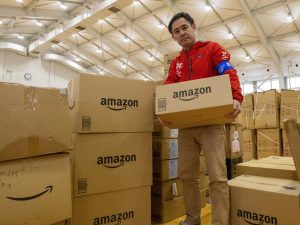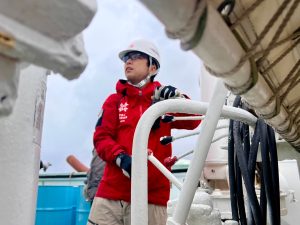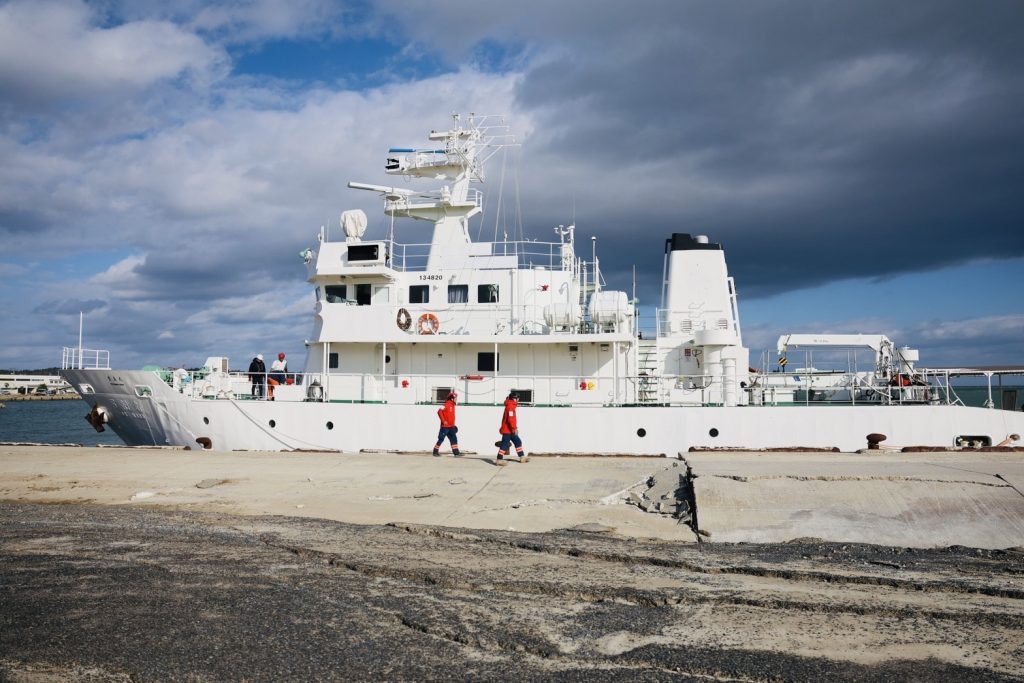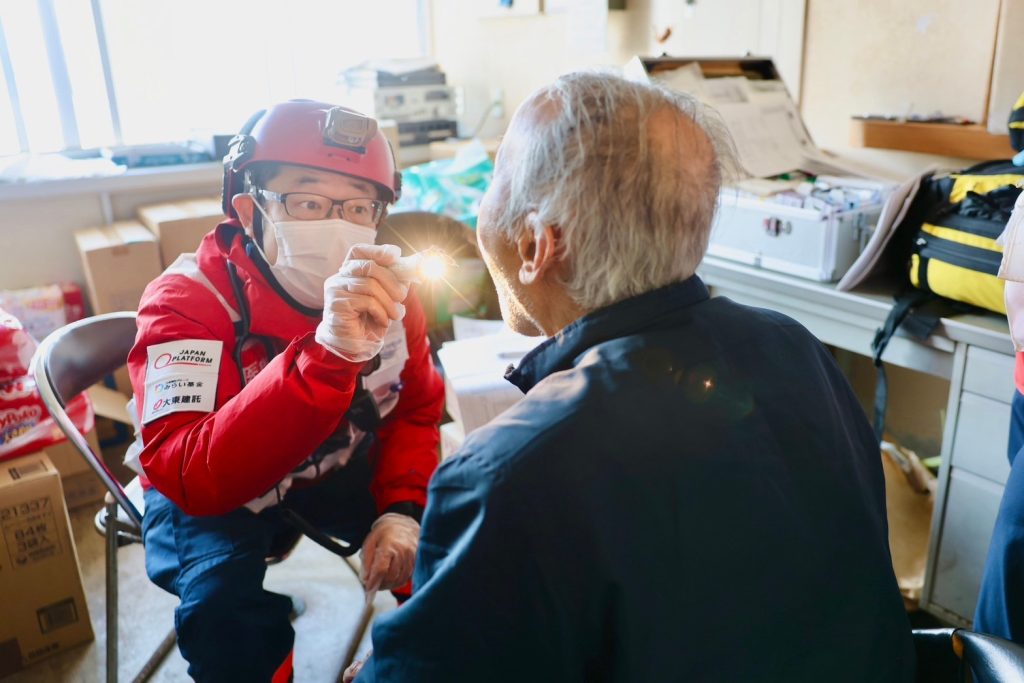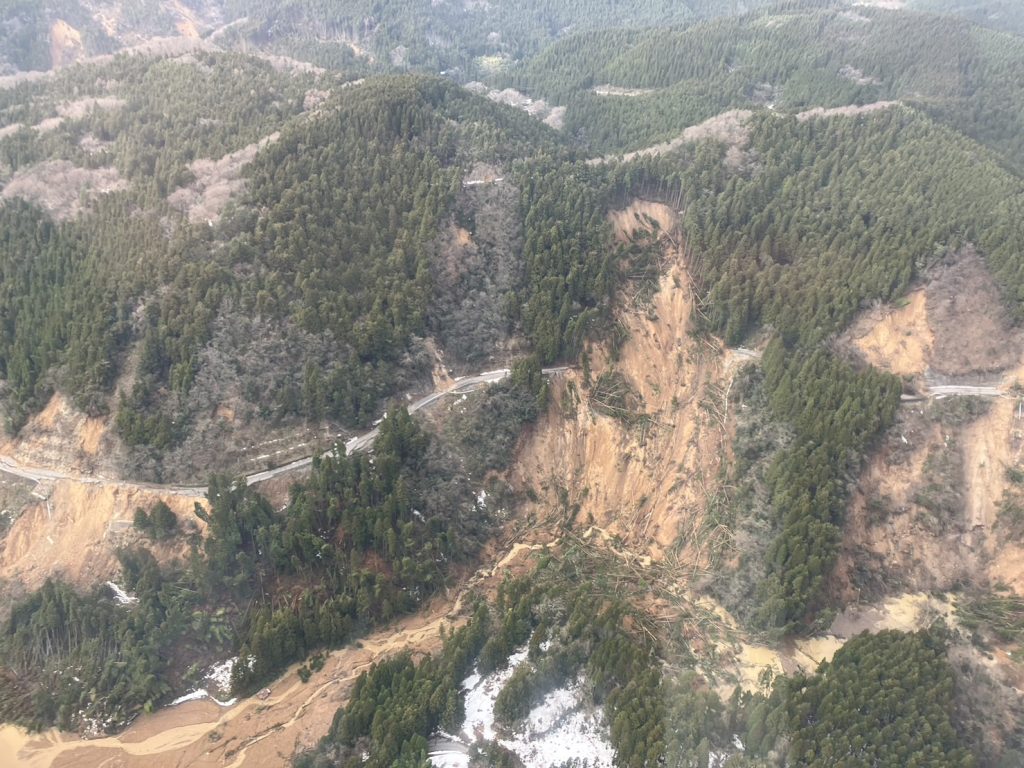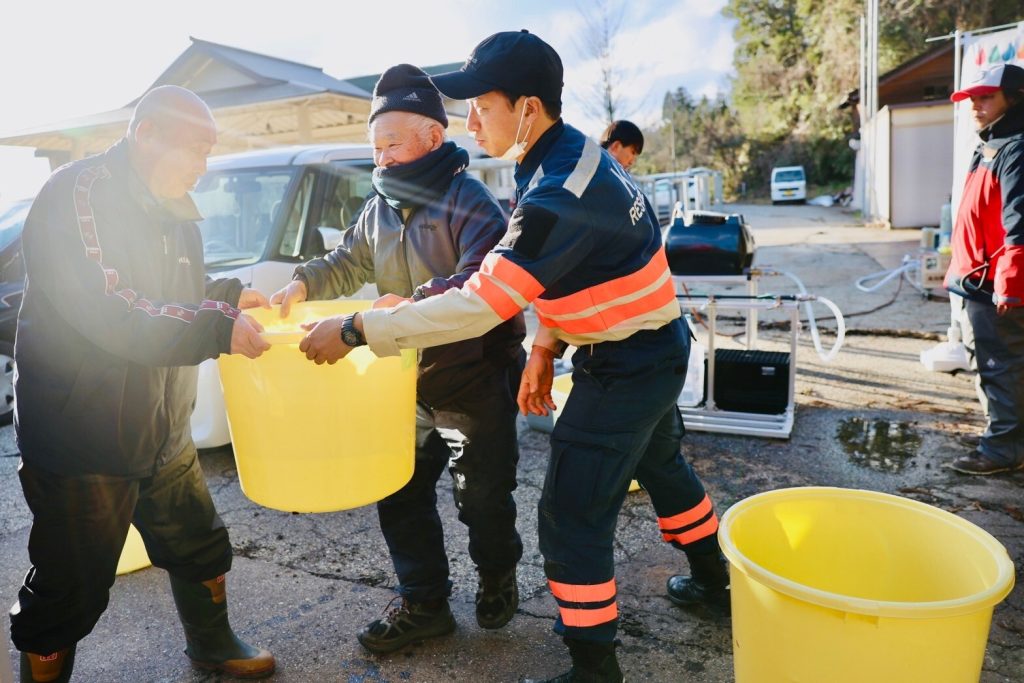Ishikawa Earthquake Relief Week 2: Providing Medical Care and Essential Supplies
A full week has passed since a 7.6 magnitude earthquake struck the Noto Peninsula in Japan’s western Ishikawa Prefecture on New Year’s Day. As of January 8, more than 160 people are confirmed dead with an additional 300 missing. At least 30,000 people have been forced to evacuate their homes and are living in evacuation centers or sleeping in their cars, greenhouses, and any place they can find shelter.
Peace Winds is grateful for the many donations and kind words we have received in support of our relief work in Japan following the earthquake. The United States-Japan Foundation is matching all contributions made to this cause through GlobalGiving up to $25,000. (Click here to double your donation thanks to the USJF fundraiser.) Thank you to the U.S.-Japan Foundation and to everyone supporting Peace Winds’ activities for earthquake survivors.
Update from January 10
Today, ARROWS teams continue coordinating medical care and delivery of relief supplies for earthquake survivors. ARROWS doctors and nurses are treating patients at evacuation centers and at temporary clinics nearby. Long lines are forming before the clinics open, and many people report feeling unwell due to symptoms such as fever or diarrhea. There is also concern about the spread of contagious illnesses like the flu, especially this time of year. Other people visiting the clinics were injured during the earthquakes and have been unable to see a doctor for days after evacuating.
In addition to providing medical care, ARROWS teams are continuously working to maintain and improve the sanitary conditions at the clinics and evacuation centers. In anticipation of the long-term need for medical care in the affected areas, Peace Winds will continue to support the systems that are providing care to patients throughout the region.
ARROWS has also established a disaster relief hub for distributing much-needed material supplies. On January 5, a first batch of Amazon relief supplies arrived in Suzu City, and our teams continue to receive shipments. Teams at Nanao Port are also loading Peace Winds’ emergency relief ship with fuel for delivery to Suzu City.
Update from January 8
Members of Peace Winds’ airborne search-and-rescue team, ARROWS, are on the ground aiding survivors in and around Ishikawa Prefecture’s Suzu City. The team of 44 includes doctors, nurses, and other emergency response professionals, and they are deploying rescue dogs, three helicopters, and a ship.
When it comes to search-and-rescue, the chance of survival for those trapped beneath the rubble drops dramatically 72 hours after a disaster. However, on January 6, Peace Winds’ Dr Mototaka Inaba and other ARROWS team members played a central role alongside other responders in the “miracle” rescue of a 90-year-old woman who had been trapped in a collapsed home for more than 120 hours. After rescuers heard a faint call for help, the woman’s location was pinpointed under the debris, and Dr. Inaba and an ARROWS nurse delivered emergency medical care as she was freed and eventually brought to safety. The woman was transported to a hospital in Suzu City where she is receiving treatment, and her survival has become a symbol of perseverance for a region that needs hope.
Watch a video from the rescue below (Japanese only).
As the situation in the Noto Peninsula progresses, Peace Winds and ARROWS continue to search for the missing while providing survivors with medical care and essential supplies. Doctors and nurses are offering health checks at temporary clinics, evacuation centers, and through house calls for elderly and disabled residents. Many evacuees are nervous about having lost their daily medications as they fled their homes but have expressed gratitude and reassurance after speaking with ARROWS doctors and nurses and receiving emergency prescriptions.
Peace Winds is also working to deliver emergency supplies to those in need. This includes food, water, and hygiene and baby items. Many earthquake-affected areas, especially rural hamlets, are experiencing delays and difficulty receiving aid because roads have been damaged or destroyed. Peace Winds’ helicopters and its ship, the “Toyoshima Maru,” are an invaluable asset for airlifting patients and delivering supplies, equipment, and personnel where large trucks and ambulances cannot reach. Although snow and freezing temperatures in the Noto Peninsula are making efforts challenging, ARROWS teams are working tirelessly to provide relief.
Additionally, water and gas lines on the northern portion of the peninsula are cut, and sanitation is becoming problematic, especially for elderly who lack water for toileting and bathing. In response, Peace Winds is distributing water that has been processed with the water purification machines the team brought to the Noto Peninsula. Peace Winds is also using its ship to transport fuel to Suzu and other communities.
As the need shifts from short-term relief to long-term recovery, Peace Winds is committed to maintaining our presence over the long term in the Noto Peninsula to help rebuild the disaster-affected communities. It is clear that there will be immense \ needs in the months and years ahead, including mental health and medical care, economic revitalization, and community-building activities.
New donations to Peace Winds’ “Japan Disaster: Relief and Recovery” project will go toward relief and recovery activities in Ishikawa Prefecture as well as broader disaster preparedness efforts. We will continue to bring updates as we are able, and we thank you for your continued support which makes our work possible.
To support Peace Winds’ emergency response:
Click here to donate from outside of Japan through GlobalGiving
Click here to donate from inside Japan through Yahoo Fundraising
For more information on the Peace Winds response and corporate/foundation contributions, please contact us at info@peacewindsamerica.org


